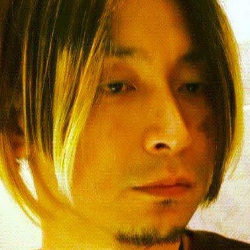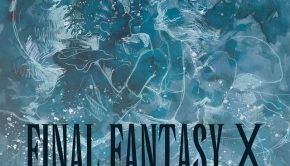Yuji Takenouchi Profile
 |
Also Known As: 竹ノ内裕治 (たけのうちゆうじ) / Disposable / Missing Soul / Mr. YT / TECHNOuchi / Y. Technouchi / Yuji TECHNOuchi / Yuuji Takenouchi / DJ Oniwasoto |
| Date of Birth: February 25, 1969 (Kyoto) |
|
| Residence: Tokyo |
|
| Game Works: X-Men, Psyvariar, Dark Souls, GE-ON-DAN |
|
| Official Site: Japanese Site |
History
| Organisation | Type | Tenure | Role |
| Konami | Game Developer | 1989 – 1996 | Composer, Sound Designer |
| Game Yarouze | Game Developer | 1996 – 2003 | Composer, Sound Designer |
| FromSoftware | Game Developer | 2007 – 2014 | Sound Director, Composer, Sound Designer |
| GE-ON-DAN | Artist Collective | 2009 – 2011 | Founder, Administrator, Member |
| Access Games | Game Developer | 2014 – 2016 | Sound Director, Composer, Sound Designer |
| iNiS | Game Developer | 2016 – | Sound Director, Composer, Sound Designer |
Biography
Yuji Takenouchi, better known as TECHNOuchi, is a sound director at FromSoftware and the founder of the sound alliance GE-ON-DAN. Born on February 25, 1969 in Kyoto, Takenouchi enjoyed music from an early age despite never being formally educated in the area. During high school, he attempted to recreate the Yellow Magic Orchestra sound using his first synthesizer, and then started to develop his own sound over several years. During these days, he also enjoyed playing The Legend of Zelda, Metroid, and Kid Icarus on the NES and ended up recorded their music for his own listening pleasure. After graduating, he began studying at technical school and subsequently noticed a job opportunity at the sound team of Konami. Given his passion for both video games and their music, he didn’t resist the opportunity to apply in 1989. While he was glad to be accepted, he was disappointed that he was assigned to create sound for the MSX rather than the NES.
Takenouchi found his initial years at Konami highly challenging due to his lack of formal musical knowledge. On his debut Pennant Race 2, henevertheless persevered to compose a range of music alongside several others in the MSX Room. In each case, he generally composed using a Roland MC-500 sequencer before entering the music data into in-house tools using hexadecimal coding. Following his debut, he served as sound producer for the shooter Space Manbow, writing the ending theme among other pieces. He was so proud to achieve such impressive sound quality on the project – using the SCC chip that he helped develop – that he went as far to buy the title’s official soundtrack six or seven time. He also participated in several large collaborative projects, notably contributing the last boss theme to SD Snatcher, the game over music for Metal Gear 2, and, at urgent request, some additional stage music for Quarth, gradually emerging as an experienced game sound creator.
Takenouchi worked on a range of projects for Konami’s arcade division after development for the MSX ceased. Following roles on Nemesis and Nama Baseball ‘68, he participated on X-Men: The Arcade Game in 1992. On this project, he was expected to overcome the greater limitations of the Yamaha YM2151 sound chip through careful rhythm programming, FM sampling, and sound design, while allowing the music and sound effects of the game to be clearly heard even in busy arcade venues. This project also provided him with an opportunity to expose the danceable music that gave him the alias TECHNOuchi to audiences across the world. Between works on Hexion, Gaiapolis, and Polygonet Commanders,he achieved another landmark the following year by offering a distinctive blend of techno music and traditional Japanese elements on Mystic Warriors. He finished his time at Konami by contributing to the partly orchestrated score to Crypt Killer, the fusion racing soundtrack for Speed King, and the light-hearted poppy sounds of Tokimeki Memorial Taisen Puzzledama.
Desiring to gain more exposure in the industry, Takenouchi departed Konami in 1996 to join the development team Game Yarouze funded by Sony Computer Entertainment. He soon started work on two major projects for the PlayStation. One was the atmospheric electronica soundtrack for 1999’s Circadia – released ten years later by Egg Music Records in response to popular demand. He also produced the highly diverse score to accompany the racing title TomaRunner, while also working on the project draft, character voices, and sound design. Afterwards, Takenouchi served as the sound producer for TomaRunner’s unexpected band-themed sequel, Gekitotsu Toma L’Arc, where he integrated music by Sony’s J-Rock band L’Arc~en~ciel, and subsequently adapted classical music into interactive pieces for the Bravo Music rhythm games. He concluded his time at the company with the music and sound design for ChainDive; in retrospectives, he has noted that the club music stage themes for this title are particularly representative of his game music career.
Takenouchi also participated in a number of album projects while scoring games for Sony. Working under pseudonyms such as Mr. YT, missing soul, and Disposable, he contributed to a range of 12 inch records and EPs, principally for R&S Records in Belgium. Defining himself as a creator of ambient and house music, he was able to expand upon the musical stylings he developed on titles such as Circadia and ChainDive without the restrictions of game scenarios and technology. With tracks such as “fragment” and “Across Your Mind”, for instance, Takenouchi was able to relax listeners with beautifully mixed piano-supported grooves. To his knowledge, he was the only game sound creator also working as a professional club artist at the time. On occasions, his roles in the two industries collided, resulting in some novel projects. Most notably, he produced the remix “Funk God -Deep Inside Mix-“ on behalf of the rhythm game Bust-A-Move: Dance Summit 2001.
In 2003, Takenouchi decided to leave Sony in order to manage a school. Due to the hectic work schedule, he was unable to continue with either game scoring or club music activities. Despite this, he was still offered the chance to score Ace Combat X: Skies of Liberation three years later; given it was a major gig, he agreed to work on the project but exclusively as a sound producer – selecting Akira Yamasaki to compose the music. Such experiences inspired the artist to return to the game industry full-time the following year. Desiring security over freedom, he decided to join developer FromSoftware as a sound director. In his first role at the company, he served as the lead sound designer for Demon’s Souls, persevering to produce cutting-edge sounds suitable for the PlayStation 3. Given he did not feel comfortable compose the orchestral music, he appointed Shunsuke Kida to create the score and supervised an orchestral recording session.
After a long time away from club music, Takenouchi made a return to the scene in 2007 with some game-related productions. On behalf of hally at Egg Music Records, he was asked to produce an electronic remix on Psyvariar “The Mix” and several remixes of his Circadia score for its long-awaited album release. He found the former project so enjoyable that he even penned an additional unused remix. Following these successes, he was asked to interpret the second stage theme for 2009’s Ketsui Arrange Album on behalf of shooter developer Cave. His deep airy electronic remix was so well-received that he was asked to return to the arranged albums for DoDonPachi Dai-Ou-Jou and Mushihimesama Futari. Following these successes, he was also conveyed ‘the breath of a machine’ with a minimalistic electronic remix on the Darius Burst arranged album. Such projects placed him at the very centre of the official game music remix scene.
In September 2009, Takenouchi founded the non-profit organisation GE-ON-DAN. This informal alliance of video game sound creators allowed artists to strengthen their industry connections, participate in collaborative projects, and engage in friendly rivalries. During the 28 months it was active, the organisation featured over 100 game composers, including many famous names that Takenouchi met through social networking sites, remix projects, concerts, and parties. In Takenouchi also led several arranged projects exclusively featuring members of GE-ON-DAN. He conceived the Guwange Arrange Album, featuring experimental blends of traditional Japanese instruments and electronic elements. He also organised the stylistically diverse DeathSmiles Arrange Album and contributed two ethereal mixes to the downloadable content of DeathSmiles IIX. The artist also helped to organise the participation of GE-ON-DAN members on Castlevania’s tribute albums, contributing “Bloody Tears” himself, before contributing remixes for Pure Songs Zero and the bonus arrange album enclosed with the bishoujo game Rewrite.
Away from the remix productions, Takenouchi has spearheaded two albums featuring original music by GE-ON-DAN members. The contributors were given complete freedom to contribute whatever style and mood of music they wanted, some like himself writing completely new tricks, others digging up classic unreleased tracks. The artist also created the original vocal mini-album Twinkle Link in collaboration with vocalist Mirin Furukawa – blending his characteristic electronic beats with a youthful pop sound – and went on to make it the subject of a remix album. Continuing to work full-time at FromSoftware, Takenouchi wrote the score for the PSP’s Monster Hunter Diary: PokaPoka Felyne Village. He created all compositions and arrangements on these productions, carefully complementing the scenes with a light-hearted storybook sound, while maintaining the acoustic flavour of the series. After the success of the original game, Takenouchi also returned for an expansion, writing several additional tracks for the new scenes.
In 2011, Takenouchi returned as the sound director of Dark Souls, the spiritual successor of Demon’s Souls. His dark ambient sound design greatly enhanced the atmosphere in the nightmarishly difficult title. The choral-focused score from high-profile composer Motoi Sakuraba also received considerable attention. Following the Tohoku Earthquake, Takenouchi released the two disc GE-ON-DAN compilation The Land of the Rising Sun at 4star Orchestra, dedicating album sales to the relief effort. In another tragic role, he helped to complete the soundtrack of Cave’s Instant Brain after veteran game composer and GE-ON-DAN member Ryu Umemoto died during its production. By the end of 2011, the activity of GE-ON-DAN abruptly ceased for unstated reasons. While he planned a ‘best of’ album for the organisation, its release ultimately fell through. Though the future of Takenouchi’s original and remix productions is unclear, the artist continues to work at FromSoftware and is likely to be currently handling Dark Souls 2.
References:
– Various Game & Album Credits
– Personal Communication
– VGMdb Discography
– Official Profile (Japanese, GE-ON-DAN)
– Official Profile (Japanese, MySpace)
– Interview with Game Music Online (English, October 2009)
– Interview with Original Sound Version (English, December 2009)
© Biography by Chris Greening (September 2010). Authorised by Yuji Takenouchi. Last updated on December 30, 2012. Do not republish without formal permission.
Posted on December 30, 2012 by Chris Greening. Last modified on August 6, 2016.














